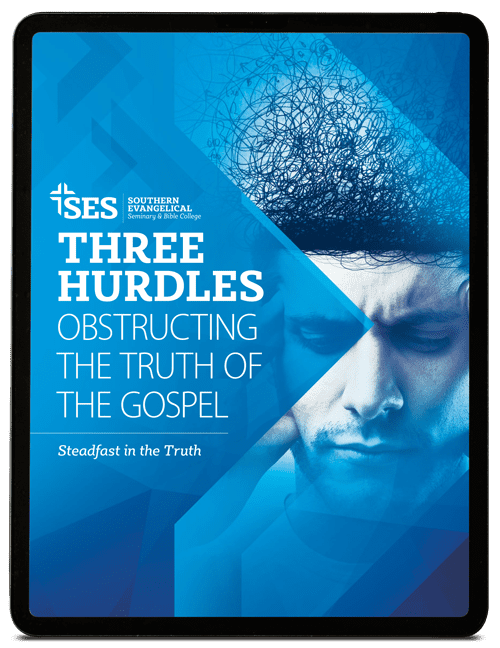By Richard Howe Ph.D,
First Things
The title of this work1 is occasioned by my increasing concerns about the nature and degree of the apologetic methodology known as Presuppositionalism which has seemingly become dominate among certain key Young Earth Creationists such as Ken Ham.2 The broader context within which my concerns arise has to do with this question: What is the proper way for Christians to defend the truth of the Christian faith? The two main answers to that question are: the Classical method, in terms of which the Christian is to marshal arguments and evidence demonstrating that the Christian faith is true and the Presuppositional method, in terms of which the truth of the Christian faith (in its entirety, together with the Bible in its entirety) must be granted to be true before any knowledge or reasoning (even reasoning against the Christian faith) is possible.
My concerns arise from two commitments I have, to wit, I am a Young Earth creationist, and I am a Classical apologist. As a Young Earth creationist, I regret that this model of creation is being done a disservice by being tethered as much as it is to an illegitimate apologetic methodology. As a Classical apologist, I desire to show Young Earth creationists that the Presuppositional method not only does not serve to convince the detractors that Young Earth Creationism is true, but it scandalizes Christians in what constitutes sound apologetics in the first place.
Classical Apologetics
There is, perhaps, little need to go into much detail of what constitutes Classical apologetics.3 Let it suffice to say that Classical method is  characterized by three levels: philosophical foundation, the existence of God, and the truth of Christianity. The first level maintains that philosophy is essential in establishing the foundation for dealing with unbelievers who might challenge the objectivity of truth or who might insist that only the natural sciences are the source of truth.4 Philosophy also is essential in dealing with certain interpretive issues of the Bible, particularly in matters dealing with the nature of God.5 The second level maintains that God’s existence can be proven by a number of lines of evidence and argument. Third, once the existence of God is proven and the possibility of miracles is thereby established, specific arguments are given for the truth of the Christian faith.
characterized by three levels: philosophical foundation, the existence of God, and the truth of Christianity. The first level maintains that philosophy is essential in establishing the foundation for dealing with unbelievers who might challenge the objectivity of truth or who might insist that only the natural sciences are the source of truth.4 Philosophy also is essential in dealing with certain interpretive issues of the Bible, particularly in matters dealing with the nature of God.5 The second level maintains that God’s existence can be proven by a number of lines of evidence and argument. Third, once the existence of God is proven and the possibility of miracles is thereby established, specific arguments are given for the truth of the Christian faith.
Presuppositional Apologetics
Presuppositional apologetics does not consist of merely examining the legitimacy of the unbeliever’s presuppositions. No model is better at doing that than the Classical model. Rather, Presuppositionalism maintains that a proper apologetic methodology must be built on the solid Reformed (Calvinist) theological doctrines of the sovereignty of God and the total depravity of the human race. The God of Christianity must be presupposed to exist before there could be any coherent or rational thought in the first place.6 What is more, Presuppositionalists often reject classical philosophy as a tool to defend the truth or the content of the Christian faith. With Ken Ham, you can add not only this rejection of the use of sound philosophy, but also of the use of the data from contemporary science.
The Presuppositionalism of Ken Ham, et al.
My criticisms of Young Earth Presuppositionalism do not stem from any objections I have to the conclusions of Young Earth Creationism. Instead, I object to how Ham characterizes the task of how the Christian can or ought to defend the faith. I see Ham making two major procedural mistakes stemming from one misguided (and inconsistently applied) overall principle. His misguided overall principle is his insistence that we have to accept the authority of God’s Word over man’s word, meaning by this that it is illicit to allow human arguments or reasoning to affect our understanding and interpretation of Scripture. From this overall principle, his two procedural mistakes are that he (albeit selectively) rejects the application of sound philosophy and science.

An example should suffice to illustrate my point. Ham participated in a panel debate on the Trinity Broadcast Network with Old Earth Creationist Hugh Ross. After Ross had summarized his desire to use the findings of contemporary science to demonstrate to the unbeliever that God was the creator and designer of the physical universe, Ham said,
My big issue is one of biblical authority. What does Scripture tell us? … We have whole generations of kids in our churches today that are told “You can believe in the millions of years and evolution. You can reinterpret Scripture here. You don’t have to take that as written. You can believe in a local flood. You don’t have to believe in a global flood. And you know what’s happening? It’s unlocked the door to undermine biblical authority.”7
For Ham, for one to argue for an ancient earth by “imposing” on Genesis such a paradigm stemming from the contemporary scientific viewpoint to inform us of the event of Creation is to reject the authority of the Bible. Clearly, Ham was rejecting any use of scientific data to guide the interpretation of the biblical text.
Despite the fact that Ham rejects the use of scientific data to affect one’s interpretation of the Scriptures, he undoubtedly uses science to understand other Scriptures. Joshua 10:12-13 is the account of the Sun standing still. What is interesting about this passage is how it was used in the 16th century against the new science from Copernicus that was promulgated by Galileo. Virtually all the church leaders (together with the university scientists) held to the Ptolemaic system that maintained that the Sun moved and that the Earth stood still. The theologians appealed to the straightforward reading of this text in Joshua to prove that the Bible taught exactly that. As they saw it, it would not be possible for the Sun to stand still if it was not moving. Thus, the Copernican system (which Galileo was defending) must be false.8
The parallels to the current controversy over Genesis should be obvious. I suspect that not even Ken Ham still defends the old Ptolemaic system. Yet, the only reason to conclude that the Joshua passage does not mean what is seems to say is because of what we know from contemporary astronomy. Today the standard interpretation of this passage is that the text is employing phenomenological language. This means that the description of the event was from perspective of the observer. To someone on Earth, it indeed looked like the Sun was moving and that it stood still. We still use such phenomenal language today when we talk about the sunrise and sunset.
My point here is that, regardless of whether Hugh Ross’s interpretation of the Genesis narrative is correct, he is doing in principle exactly what Ken Ham would do with the Joshua passage. There can be no doubt that there is nothing wrong (as a matter of principle) with using the data of science to guide us in Scriptural interpretation. What goes for the data of science goes also for the data of sound philosophy.
Let not the reader misunderstand. I am not defending Hugh Ross’s views. But in Ham’s estimation, Ross’s view is a denial of the authority of God’s Word. But this issue is not one of authority but of interpretation. To appeal to scientific data or sound philosophical reasoning is not an assault on the integrity of the Bible. In fact, there is no way to fend of the heresy of, for example, the Dake Annotated Reference Bible (see above) when Dake argues from Scripture that God has bodily parts. In all this then, it is not simply a matter of God’s Word vs. man’s words. It is incumbent upon us as Christians to utilize all the resources God has provided to defend His truths.
Endnotes:
[1]. I would like to thank Eric Gustafson of Southern Evangelical Seminary for drawing my attention to this issue and for suggesting to me the title “Young Earth Presuppositionalism.”
[2]. My main sources for what Ken Ham thinks in these matters consist of a talk on apologetic methodology he gave at a church near where I live, as well as a panel debate I heard on the Trinity Broadcast Network (available on the internet) in which he participated with Hugh Ross and others.
[3]. For my annotated bibliography on Christian apologetics go to http://www.richardghowe.com/apobib.pdf. For a model (among many) of how Classical apologetics can be done see, J. P. Moreland, Scaling the Secular City: A Defense of Christianity (Grand Rapids, Baker Book House, 1987). For an extended treatment of how Classical apologetics differs from Presuppositional apologetics see, R. C. Sproul, John Gerstner, and Arthur Lindsley, Classical Apologetics: A Rational Defense of the Christian Faith and a Critique of Presuppositional Apologetics (Grand Rapids, Academie Books, 1984).
[4]. For a helpful treatment of postmodernism and a defense of the notion that truth is objective see, Douglas Groothuis, Truth Decay: Defending Christianity Against the Challenges of Postmodernism (Downers Grove, InterVarsity Press, 2000). For other recommend resources to help with philosophical issues, see the “Philosophy” section of my bibliography referenced above.
[5]. See, for example, the heresy promulgated by Finis Jennings Dake in his The Dake Annotated Reference Bible (Lawrenceville, GA: Dake Bible Sales, 1991), p. 97 where he defends the notions that God has such bodily parts.
[6]. For an extended bibliography of resources (primary and secondary, sympathetic and critical) dealing with Presuppositionalism see my “Some Brief Critical Thoughts on Presuppositionalism,” note #2 at http://www.richardghowe.com/Presuppositionalism.pdf.
[7]. From “Ken Ham vs. Hugh Ross” on You Tube from http://www.youtube.com/watch?v=zgueGotRqbM, access 09/14/12.
[8]. For an excellent treatment of the exegetical aspects of this Galileo affair see, Richard J. Blackwell, Galileo, Bellarmine, and the Bible (Notre Dame: University of Notre Dame Press, 1991).
[9]. Image credit: JD Hancock Flickr Account.







